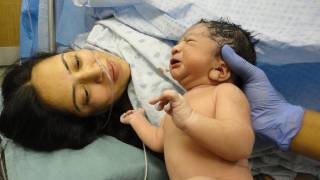Norovirus Outbreak at 2018 Winter Olympics Reported

Before the first 2018 Winter Olympic event takes place, a new health challenge has officials taking action.
An outbreak of the highly contagious norovirus has sickened dozens of Olympic security officials and requires many others to be quarantined, reported by The Korea Times.
Forty-one (41) PyeongChang Winter Olympics security guards displayed symptoms of a norovirus infection, the Korea Centers for Disease Control and Prevention (KCDC) said.
Another 1,200 security agents are under quarantine and are being replaced by 900 soldiers at 20 venues. These security agents were staying in the same building 15 kilometers north of PyeongChang, eating the same food and drinking the same water.
Security agents who don’t have symptoms and test negative for the virus will be able to return to work in a few days, a Korea Center for Disease Control official said.
The KCDC suspects food and water as the main culprits of the infection, and investigators are examining this.
The water supply reportedly came from groundwater.
The KCDC has banned the same food and water from being served in the future.
Although water is essential for life, it also can spread illness when it is contaminated by disease-causing organisms, says the Centers for Disease Control and Prevention’s (CDC) Waterborne Disease Prevention Branch.
We suspect a norovirus is to blame for 38 other patients with similar symptoms," a KCDC official said.
Norovirus is a stomach bug that is spread through contaminated food, water or contact with an infected person. It is spread by the fecal-oral route. Preventive measures include hand washing and disinfection of contaminated places.
Travelers diarrhea is a syndrome that affects 35-70% of travelers. Bacteria cause 80-90% and can be treated with antibiotics. Intestinal viruses usually account for at least 5%–8% of illnesses, although improved diagnostics may increase recognition of norovirus infections in the future, according to the CDC.
Infections with protozoal pathogens are slower to manifest symptoms and collectively account for approximately 10% of diagnoses in longer-term travelers.
In October 207, the U.S. Food and Drug Administration (FDA) granted Fast Track designations for Aemcolo (Rifamycin SV MMX®) for the treatment of patients with travelers’ diarrhea.
"Travelers’ diarrhea can be highly disruptive and cause significant discomfort for patients, and in some cases, it can progress to more serious conditions if not treated effectively,” said Tom Joyce, CEO of Aries Pharmaceuticals.
Phase III clinical trials of Aemcolo in travelers’ diarrhea have been completed in the U.S. and EU. The Phase III program demonstrated Aemcolo’s superiority as compared to a placebo and its non-inferiority as compared to Ciprofloxacin.
Aemcolo is a broad spectrum, semi-synthetic, orally administered, minimally absorbed antibiotic which can be used for the treatment of bacterial infections of the colon such as travelers’ diarrhea.
Our Trust Standards: Medical Advisory Committee

























